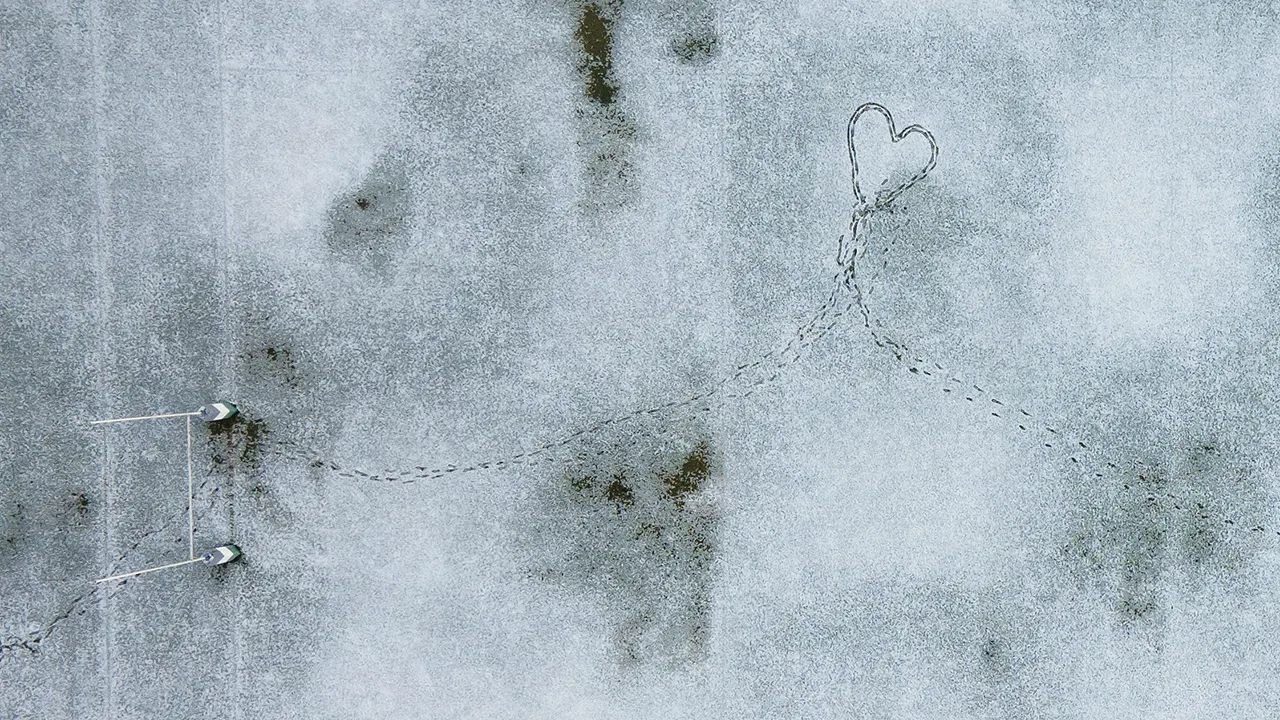World
Boxing’s IBA out of Olympics, but bouts still on for Paris Games

International Olympic Committee withdraws recognition of International Boxing Association at Olympic events.
The International Olympic Committee (IOC) has banished the International Boxing Association (IBA) from its ranks due to its failure to complete reforms on governance, finance and ethical issues.
At a virtual extraordinary IOC Session on Thursday, 69 members voted in favour of exiling the IBA, with only one vote against it. Ten members abstained from the vote.
The IOC’s decision was inevitable after being recommended two weeks ago by the executive board, a body chaired by IOC President Thomas Bach.
Boxing, however, will keep its status as an Olympic sport at the 2024 Paris Games.
“We highly value the sport of boxing. We have an extremely serious problem with IBA because of their governance,” Bach told IOC members during their online meeting.
The #IOCSession, meeting remotely, has withdrawn the recognition of International Boxing Association (IBA), upon the recommendation of the IOC Executive Board (EB).
Decision is based on the IOC Comprehensive Report on the Situation of the IBA, discussed by the IOC EB on 7 June.
— IOC MEDIA (@iocmedia) June 22, 2023
The dispute focused on the IBA’s management under presidents from Uzbekistan and Russia, whom the IOC disapproved of, its finances being backed by Russian state energy firm Gazprom, plus the integrity of bouts and judging.
“The boxers fully deserve to be governed by an international federation with integrity and transparency,” the IOC president said.
National boxing federations defied IOC warnings in 2018 by electing Gafur Rakhimov as president. The businessman from Uzbekistan allegedly had ties to organised crime and heroin trafficking. Umar Kremlev’s election to replace Rakhimov in 2020 followed another round of IOC election warnings that went unheeded.
The IBA’s debts approaching $20m were cleared under Kremlev, and the IOC objected to the boxing body’s financial reliance on Russia’s Gazprom.
Kremlev announced last month at the men’s world championships that the IBA was no longer sponsored by Gazprom, and his rhetoric against Olympic officials got more confrontational.
The IOC is already overseeing boxing competitions for the Paris Olympics without IBA involvement, as it did for the Tokyo Games in 2021.
It was unclear if boxers representing national federations who stay affiliated with the IBA will be classed as eligible for the Paris competition.
The move means that the sport of boxing can now be confirmed on the 2028 Los Angeles Olympic programme, which the IOC and Bach withheld as leverage against IBA. Boxing is “guaranteed” to be in Los Angeles, members were told Thursday.
With the IBA relationship now ended, the IOC can now start to work with a rival organisation created this year called World Boxing, which has drawn support from officials in the United States, Switzerland and the United Kingdom.
The IBA, which called Thursday’s decision a “tremendous error”, can appeal to the Court of Arbitration for Sport.
The expulsion was “catastrophic for global boxing and blatantly contradicts the IOC’s claims of acting in the best interests of boxing and athletes”, the Lausanne-based IBA said in a statement.

World
Ukraine's divisive mobilization law comes into force as a new Russian push strains front-line troops
KYIV, Ukraine (AP) — A divisive mobilization law in Ukraine came into force on Saturday, as Kyiv struggles to boost troop numbers after Russia launched a new offensive that some fear could close in on Ukraine’s second-largest city.
The legislation, which was watered down from its original draft, will make it easier to identify every conscript in the country. It also provides incentives to soldiers, such as cash bonuses or money toward buying a house or car, that some analysts say Ukraine cannot afford.
Lawmakers dragged their feet for months and only passed the law in mid-April, a week after Ukraine lowered the age for men who can be drafted from 27 to 25. The measures reflect the growing strain that more than two years of war with Russia has had on Ukraine’s forces, who are trying to hold the front lines in fighting that has sapped the country’s ranks and stores of weapons and ammunition.
Ukrainian President Volodymyr Zelenskyy also signed two other laws Friday, allowing prisoners to join the army and increasing fines for draft dodgers fivefold. Russia enlisted its prisoners early on in the war, and personnel shortages compelled Ukraine to adopt the new measures.
Russian troops, meanwhile, are pushing ahead with a ground offensive that opened a new front in northeastern Ukraine’s Kharkiv region and put further pressure on Kyiv’s overstretched military. After weeks of probing, Moscow launched the new push knowing that Ukraine suffered personnel shortages, and that its forces have been spread thin in the northeast.
Russian President Vladimir Putin said on Friday during a visit to China that the Russian push aims to create “a buffer zone” rather than capturing Kharkiv, the local capital and Ukraine’s second-largest city.
Still, Moscow’s forces have pummeled Kharkiv with strikes in recent weeks, hitting civilian and energy infrastructure and prompting angry accusations from Zelenskyy that the Russian leadership sought to reduce the city to rubble. On Friday, Mayor Ihor Terekhov said that Russian guided bombs killed at least three residents and injured 28 others that day.
Moscow denies deliberately targeting civilians, but thousands have died or suffered injuries in the more than 27 months of fighting.
The U.S. last week announced a new $400 million package of military aid for Ukraine, and President Joe Biden has promised that he would rush badly needed weaponry to the country to help it stave off Russian advances. Still, only small batches of U.S. military aid have started to trickle into the front line, according to Ukrainian military commanders, who said it will take at least two months before supplies meet Kyiv’s needs to hold the line.
Thousands of Ukrainians have fled the country to avoid the draft since Russia’s all-out invasion in February 2022, some risking their lives as they tried to swim across a river separating Ukraine from neighboring Romania and Hungary.
Late on Friday, Ukraine’s border service said that at least 30 people have died trying to cross the Tisza River since the full scale-invasion.
Romanian border guards days earlier retrieved the near-naked, disfigured body of a man that appeared to have been floating in the Tisza for days, and is the 30th known casualty, the Ukrainian agency said in an online statement. It said the man has not yet been identified.
___
Follow AP’s coverage at https://apnews.com/hub/russia-ukraine
World
An unusual autumn freeze grips parts of South America, giving Chile its coldest May in 74 years

Chileans are bundling up for their coldest autumn in more than 70 years mere days after sunning in T-shirts — a dramatic change of wardrobe brought on this week by a sudden cold front gripping portions of South America unaccustomed to bitter wind chills this time of year.
CHILE SHUTS DOWN A POPULAR GLACIER, SPARKING DEBATE OVER CLIMATE CHANGE AND ADVENTURE SPORTS
Temperatures broke records along the coast of Chile and in Santiago, the capital, dipping near freezing and making this month the coldest May that the country has seen since 1950, the Chilean meteorological agency reported.
An unusual succession of polar air masses has moved over southern swaths of the continent, meteorological experts say, pushing the mercury below zero Celsius (32 Fahrenheit) in some places. It’s the latest example of extreme weather in the region — a heat wave now baking Mexico, for instance — which scientists link to climate change.
Footprints create the shape of a heart in a snow-covered rugby field in Santiago, Chile, Wednesday, May 8, 2024. (AP Photo/Matias Basualdo)
“The past few days have been one of the longest (cold fronts) ever recorded and one of the earliest ever recorded” before the onset of winter in the Southern Hemisphere, said Raul Cordero, a climatologist at Santiago University. “Typically the incursions of cold air from the Antarctic that drive temperatures below zero occur from June onwards, not so much in May.”
The cold front sweeping in from Antartica has collided with warm air pushing in from the northwestern Amazon, helping fuel heavy rainstorms battering Brazil, according to that country’s National Meteorological system.
Chile’s government issued frosty weather alerts for most of the country and ramped up assistance for homeless people struggling to endure the frigid temperatures on the streets. Snow cloaked the peaks of the Andes and fell in parts of Santiago, leading to power outages in many areas this week.
“Winter came early,” said Mercedes Aguayo, a street vendor hawking gloves and hats in Santiago.
She said she was glad for a boost in business after Chile’s record winter heat wave last year, which experts pinned on climate change as well as the cyclical El Niño weather pattern.
“We had stored these goods (hats and gloves) for four years because winters were always more sporadic, one day hot, one day cold,” Aguayo said.
This week’s cold snap also took parts of Argentina and Paraguay by surprise.
Energy demand soared across many parts of Argentina. Distributors cut supplies to dozens of gas stations and industries in several provinces to avoid outages in households, , the country’s main hydrocarbon company, CECHA, said Thursday.
World
Brussels, my love? Transparency over MEPs' side jobs

In this edition, we look at what lawmakers’ extracurricular activities mean for their core role.
This week, we are joined by Sophia Russack, senior researcher from the Centre for European Policy Studies, Petros Fassoulas, secretary general of European Movement International and Anna Nalyvayko, senior project officer from the Wilfried Martens Center.
Panelists debate the ethical questions raised by MEPs who have side jobs. Those extra roles are legal, but the political earthquake caused by the Qatarargate scandal led to tighter rules and more transparency.
Is this enough to bridge the gulf between citizens and politicians, in today’s fractured political landscape?
“We see that they have improved rules when it comes to reporting requirements, to laying open your financial situation before and after the offers, and so on. But to be honest, none of these things will prevent another Qatargate,” said Sophia Russack, a think tanker who is an expert in EU institutional architecture, decision-making processes and institutional reform.
Despite these concerns, Petros Fassoulas said MEPs shouldn’t abandon contact with the real world altogether.
“It’s important for them to have the opportunity to bring expertise from outside and engage also with the world outside of the chamber,” Fassoulas said. “An MEP or any parliamentarian should be in contact with the people that they regulate, the businesses that they have an impact on.”
Guests also discussed the reasons for the crisis of public confidence in politicians, and gave some ideas for solutions.
Watch “Brussels, my love?” in the player above.
-

 World1 week ago
World1 week agoPentagon chief confirms US pause on weapons shipment to Israel
-

 Politics1 week ago
Politics1 week agoRFK Jr said a worm ate part of his brain and died in his head
-

 Politics1 week ago
Politics1 week agoOhio AG defends letter warning 'woke' masked anti-Israel protesters they face prison time: 'We have a society'
-

 News1 week ago
News1 week agoNine Things We Learned From TikTok’s Lawsuit Against The US Government
-

 Politics1 week ago
Politics1 week agoBiden’s decision to pull Israel weapons shipment kept quiet until after Holocaust remembrance address: report
-

 Education1 week ago
Education1 week agoVideo: Police Use Pepper Spray on Protesters on G.W.U.’s Campus
-

 World1 week ago
World1 week agoA look at Chinese investment within Hungary
-

 News1 week ago
News1 week agoThe Major Supreme Court Cases of 2024
















